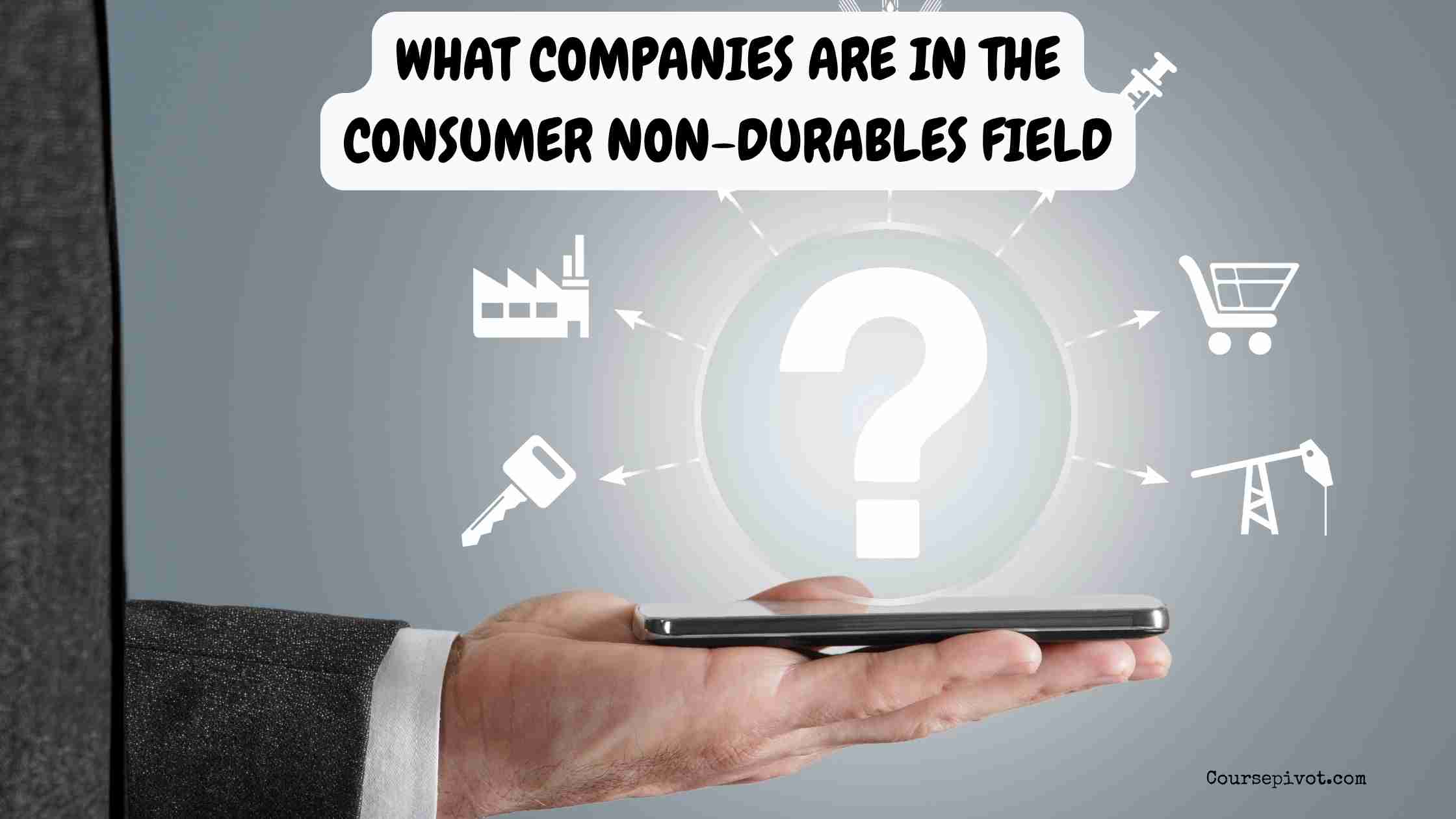
What Companies Are in the Consumer Non-Durables Field?
The consumer non-durables field, often called fast-moving consumer goods (FMCG), includes companies producing goods with a short lifespan, like food, beverages, and personal care items, that are consumed quickly and replaced often. I’ve been fascinated by how these firms shape daily life with products we all use, from toothpaste to snacks, and their resilience in economic shifts. Understanding what companies are in the consumer non-durables field highlights the giants and innovators driving this essential sector.
Table of Contents
In this article, I’ll outline five key categories of consumer non-durables companies with examples, based on my research and insights into the industry as of May 2025. These categories show the sector’s diversity. Let’s dive into who’s behind the products we use every day and their impact on our lives.
Ever wondered who makes the snacks, soaps, and clothes you use daily? It’s a massive industry of household names and niche players. Ready to explore five categories of consumer non-durables companies?
Consumer non-durables are everywhere, from your coffee to your shampoo. I’ve seen how these firms keep shelves stocked with essentials. Let’s uncover what companies are in the consumer non-durables field.
1. Food and Beverage
These companies produce and distribute food, drinks, and snacks, meeting daily nutritional needs. This is a cornerstone category in the consumer non-durables field. I’ve been impressed by their global reach and innovation.
- Examples. Nestlé ($270B market cap), PepsiCo ($230B), Coca-Cola ($300B), per 2025 Yahoo Finance.
- Impact. Coca-Cola serves 1.9B drinks daily across 200 countries; Nestlé, the largest food company, had €87B in 2024 sales, per company reports.
- Others. Kraft Heinz (condiments, $40B), General Mills (cereals, $30B), per 2025 Zippia.
Why it matters? Food and beverage firms ensure constant supply of essentials, driving stable demand.
2. Personal Care and Household Products
These companies make hygiene and cleaning products, like soap, toothpaste, and detergents, used daily. This consumer non-durables category is vital for health and home. I’ve noticed their focus on sustainability.
- Examples. Procter & Gamble ($360B market cap), Unilever ($160B), Colgate-Palmolive ($80B), per 2025 Investopedia.
- Scale. P&G’s 2024 sales hit $82B, with brands like Tide and Gillette used by 5B people, per company data; Unilever reaches 3.4B consumers in 190 countries.
- Others. Kimberly-Clark (Huggies), Reckitt (Lysol), per 2025 SuperMoney.
Why it’s key? These products are non-negotiable for hygiene, fueling consistent purchases.
Read our blog on Companies in the healthcare sector
3. Apparel and Footwear
Apparel companies produce clothing and shoes, blending fashion with function. This category in the consumer non-durables field thrives on trends. I’ve been intrigued by their cultural influence.
- Examples. Nike ($120B market cap), LVMH ($400B), Adidas ($60B), per 2025 Forbes.
- Reach. Nike’s 2024 revenue was $51B, with footwear leading; LVMH’s luxury brands like Louis Vuitton drive apparel sales, per company reports.
- Others. H&M (fast fashion), Under Armour (athleisure), per 2025 TradingView.
Why it matters? Apparel meets basic and expressive needs, with rapid turnover in fast fashion.
4. Tobacco and Alcoholic Beverages
These companies produce cigarettes, tobacco products, and alcoholic drinks, catering to specific consumer habits. This consumer non-durables category is resilient despite regulation. I’ve seen their steady demand despite controversies.
- Examples. Philip Morris International ($120B market cap), Anheuser-Busch InBev ($110B), Diageo (Johnnie Walker, $70B), per 2025 Value.Today.
- Impact. Philip Morris sells Marlboro in 180 markets, with $32B in 2024 revenue; AB InBev’s Budweiser is global, per company data.
- Others. Altria (U.S. tobacco), Heineken (beer), per 2025 Zippia.
Why it’s significant? These products maintain loyal markets, even in economic downturns.
5. Pharmaceuticals (Consumer-Focused)
These firms produce over-the-counter (OTC) drugs, vitamins, and supplements, addressing everyday health needs. This category of consumer non-durables companies bridges health care. I’ve been struck by their role in self-care.
- Examples. Johnson & Johnson ($380B market cap), AbbVie ($170B), Bayer (Advil, $40B), per 2025 Yahoo Finance.
- Scale. J&J’s consumer brands like Tylenol generate $15B annually; AbbVie’s OTC products complement its pharma portfolio, per 2024 reports.
- Others. GSK (Sensodyne), Sanofi (Dulcolax), per 2025 SuperMoney.
Why it matters? OTC drugs are frequently bought, supporting health and driving sales.
Read our blog on What Companies Are in the Consumer Services Field
What’s Next for You
Understanding what companies are in the consumer non-durables field is like seeing the pulse of daily consumption. I’ve been inspired by how these five categories—food and beverage, personal care, apparel, tobacco/alcohol, and pharmaceuticals—include giants like Procter & Gamble ($360B market cap) and Nike, per 2025 Yahoo Finance. With the U.S. FMCG market at $2T in 2024, per Consumer Brands Association, and non-durables less sensitive to recessions, per Investopedia, this sector is robust. Ignoring it misses a stable industry; engaging offers career and investment potential. Will you overlook these everyday giants, or tap into their opportunities?
Here’s how to act:
- Explore jobs. Search Indeed for roles at PepsiCo or Unilever, with 100,000+ U.S. jobs in FMCG, per 2025 Zippia.
- Invest smart. Track Coca-Cola or Nestlé on Yahoo Finance for stable returns, as non-durables resist downturns.
- Stay informed. Follow Statista or Consumer Goods Technology for trends like sustainability in FMCG.
Consumer non-durables power daily life. Why it matters is about stability and impact. Start today to connect with the companies behind your essentials.
Cite this article
You can copy and paste your preferred citation format below.
Martin, L. & Arquette, E.. (2025, May 31). What Companies Are in the Consumer Non-Durables Field?. Coursepivot.com. https://coursepivot.com/blog/what-companies-are-in-the-consumer-non-durables-field/



